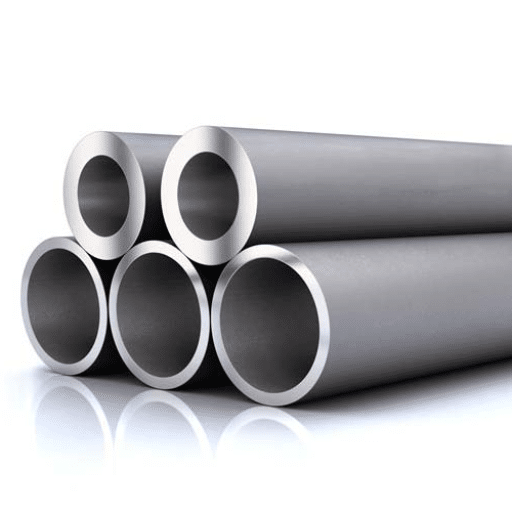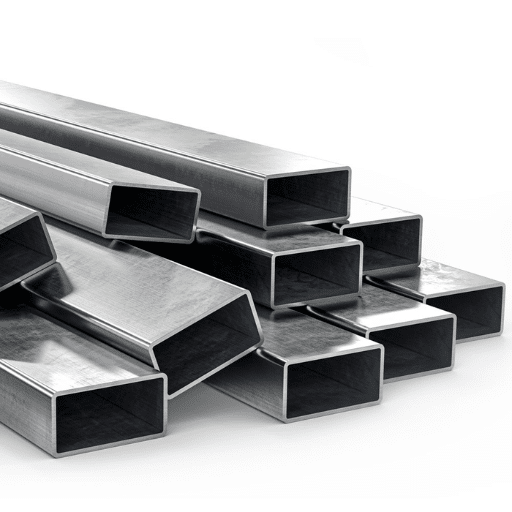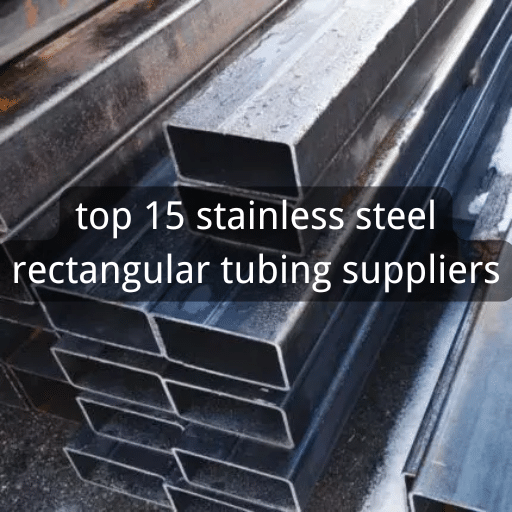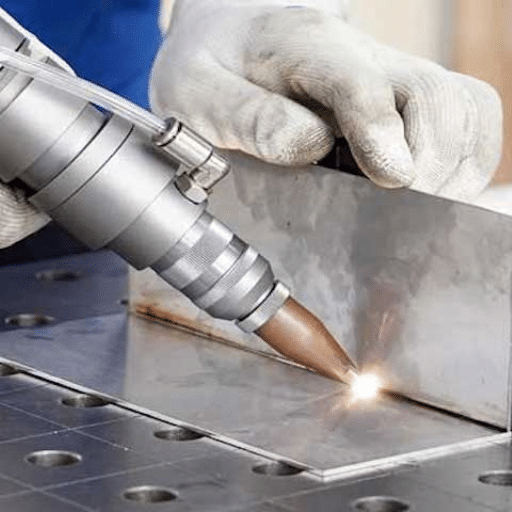As far as construction, manufacturing, or even design goes, the materials needed require special consideration, one being titanium and the other, steel. Both steel and titanium are associated with strength and multi purposiveness at different degrees, but the weight, cost, durability, and application vary greatly. The purpose of this article is to present a comparison of two metals in terms of their strengths and weaknesses. If you are constructing medical implants, aerospace parts, or building structures, comprehending the differences between titanium and steel is essential to making sound decisions.
What Are the Main Differences Between Titanium and Steel?
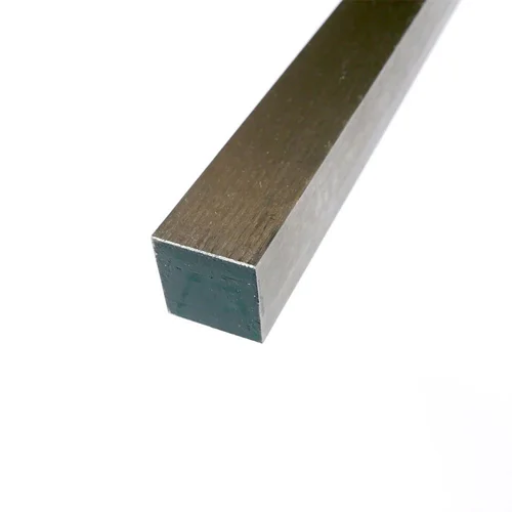
Titanium and steel differ primarily in tensile strength, weight, corrosion resistance, and pricing. Comparatively, titanium encompasses lightweight features along with superior strength and resistance against corrosion, giving it an advantage over steel for usage in aerospace, medical, and marine applications. Steel , on the other hand, is more affordable, versatile, and heavier, which allows it to offer exceptional strength for construction, automotive, and industrial applications. While the decision between the two materials can prove to be extremely useful for most forms of construction, it will ultimately depend on the project’s requirements, such as weight, hostile environments, and budget.
Density and Weight: How Titanium is Lighter than Steel
The foremost factor I always highlight when contrasting titanium and steel is their obvious gap in density. The density of titanium is approximately 4.5 grams per cubic centimeter. That is almost half compared to steel, which is roughly between 7.8 to 8 grams per cubic centimeter. Its lower density enables titanium to be remarkably lightweight, which makes it exceptionally strong. From my experience working with titanium, this quality alone makes it especially desirable in situations where minimizing weight is crucial, like in aerospace parts or modern sporting goods. Steel’s outstanding toughness is unmatched, but its larger weight makes it weaker, meaning that titanium is the solution for heavily weight-constrained projects.
Strength-to-Weight Ratio: Why Titanium Has a Higher Value
Titanium has superior properties than steel which gives it considerable lightness while having ability analogous to steel. This provides an appealing option for industries which demand strength but also weight reduction. The exceptional performance of titanium in demanding environments is why it is revered in aerospace, medical, and high-performance engineering fields.
Corrosion Resistance: Comparing Titanium and Stainless Steel
In terms of resistance to corrosion, titanium usually excels over stainless steel in more extreme conditions. In my opinion, nothing rivals titanium’s ability to resist corrosion, particularly in saltwater and heavily chemical-laden environments. Unlike stainless steel, which has the potential to corrode under harsh conditions, titanium develops a strong self-protecting oxide layer that prevents further damage. This makes titanium ideal for applications such as marine structures, chemical processing equipment, and medical implants where long-term durability and reliability are of paramount importance. Withstanding corrosion is an area in which titanium excels, thus making it the first choice, unlike stainless steel, which is much more affordable and durable. However, titanium is the answer when extraordinary resistance to corrosion is a must.
How Do Titanium and Steel Compare in Terms of Strength?
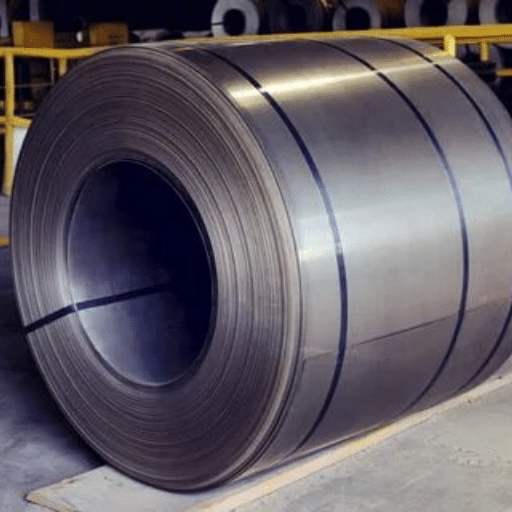
In the case of strength comparatives, titanium has an exceptional strength-to-weight ratio, which exceeds that of steel in cases where lightweight yet durable materials are needed. While steel does tend to have greater tensile strength, titanium provides an appreciable amount of strength at nearly half the mass, which makes titanium very important in aerospace, automotive, and medical industries. However, the final decision is based on what the application requires in the first place: weight limits, environmental circumstances, and how much load needs to be supported.
Tensile Strength and Yield Strength: Steel vs Titanium
From my understanding, my industry experience shows that the selection of either steel or titanium depends heavily on the given application. Steel, which has a comparatively greater tensile strength, is the material of choice in cases where there is a need for significant load-bearing capacity and cost efficiency. On the other hand, titanium is absolutely necessary in cases where weight must be minimized, such as in aerospace structures and medical implants, and durability cannot be compromised due to altitude and pressure conditions. In those cases, titanium’s unparalleled strength-to-weight ratio makes it ideal. Throughout my career, I have witnessed titanium performing incredibly well in circumstantial environments because of its corrosion resistance – a characteristic that steel does not possess without additional coatings. In the end, my professional recommendation is that performance requirements, financial limits, and environmentally realistic expectations are always analyzed in detail before determining the best material.
Hardness and Durability: Which Metal Performs Better?
The selection of either titanium or steel depends on the application and specific requirements to be dictated. Based on my experience, both metals have a set of advantages, although their performance is conditional on the objectives pursued.
- Hardness: When compared to titanium, steel does have some advantages in terms of hardness. For panes, certain high-carbon steels are incredibly hard and can withstand surface deformation, which makes them optimal for usage in industrial machinery, heavy-duty applications, and cutting tools. This does not mean that titanium is soft—it is strong and maintains an acceptable balance of being lightweight and hard, although not suitable for high-force environments.
- Durability: Instead of steel, titanium is exceptional for long-lasting performance in regrettable conditions, especially corrosion. Steel would rust in maritime environments or during chemical exposure, but titanium would thrive. Not to mention, titanium also has exceptional fatigue resistance, which allows it to withstand multiple cycles of tension and compression, making it a favorite material in aerospace applications and medical implants.
- Weight-to-Durability Ratio: One advantage that titanium has which is unmatched is its strength-to-weight ratio. If anything requires, it to be lightweight but still tough enough to last, then there is no other metal better than titanium. Steel, although strong, does have its downsides. Being heavy does make it a limiting factor for use in aerospace and automotive design.
- Impact Resistance: Due to the higher density and inherent toughness, steel does perform better than titanium when it comes to heavy impacts, which facilitates its usage in tools, construction, and infrastructure where there is considerable physical wear and tear.
In the end, the best performer for you depends on your particular requirements. If you need lightweight strength in corrosive environments, select titanium. However, steel might be the ideal choice if extreme hardness and impact resistance are needed. Before choosing a material, always consider what conditions it will be subjected to. Factors such as impact tolerance, weight, corrosion resistance, and hardness all need to be taken into account.
Mechanical Properties Under Different Conditions
Evaluating the mechanical properties of any given material always comes down to the specific use case. Titanium possesses many beneficial qualities, making it a strong candidate where corrosion and low weight is an issue — including, but not limited to, military and chemical industries. When strength and impact resistance are desired, steel reigns supreme due to its unmatched endurance even under the most strenuous of conditions. Thus, the ideal metal always remains contingent on the parameters of weight, longevity, and surrounding environmental phenomena.
What Are the Unique Properties and Applications of Each Metal?
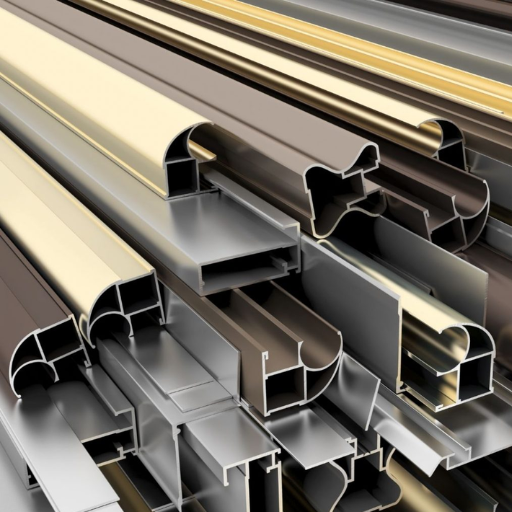
With my industry-level experience of working with both titanium and steel, I can say that each has its unique advantages to offer. When it comes to Titanium, its superlative strength mobility ratio gives it an edge over its competitors as it takes the lead in aerospace components, medical implants, and sporting equipment, where keeping weight to a minimum while enhancing strength is essential. Its ability to withstand corrosion, especially in the marine and industrial sectors, is vital when it comes to harsh chemicals or seawater applications, making it indispensable. In contrast, steel is unmatched in pliability because of the plethora of alloys and treatments available. Its remarkable hardness combined with exceptional toughness makes it a must in construction, production of automotive vehicles, heavy machinery, and steel structures, which rely on strength and durability. There is no one answer to which is better because different projects have diverse requirements, which means both metals are equally primary.
Titanium’s Biocompatibility and Medical Applications
Corrosion resistance and inertness make titanium suitable for medical uses, while implants, prosthetics, and surgical instruments benefit from biocompatibility. Its suitability for implantation in the human body is also ensured by its lightweight feature, strength, and ability to osseointegrate, which guarantees durability and safety for patients.
Steel Alloys and Their Industrial Uses
As an expert in the field, it is clear to me that the importance of steel alloys to a myriad of industries stems from their unrivaled adaptability and strength. Steel alloys are such versatile materials due to their great machinability and weldability, which allows them to be further tailored by mixing iron with other elements like carbon, chromium, or nickel to increase hardness, corrosion resistance, or heat tolerance. Rust resistance and strength make stainless steel highly preferred in construction, automotive, and aerospace fields, while high-carbon steel takes the spotlight in the manufacturing of tools and machinery. The versatility of these materials is what makes them an important driving force in the innovation and needs of contemporary industrial applications.
How Each Metal Conducts Heat and Resists Corrosion
2000-character assignment: Metals possess different values of thermal conductivity and resistance to corrosion due to their atomic structures and compositions. Considering the case of copper, it serves as an excellent conductor of heat and is widely used in electrical wiring and heat exchangers; however, it has a tendency to oxidize, which may require it to be coated with a protective layer. Aluminum is less of a conductor than copper, but in return, it possesses a balance of thermal conductivity and superior resistance to corrosion due to its natural oxide covering. Stainless steel demonstrates moderate conductivity of heat; however, it does poorly when compared to copper in terms of conductivity. Unlike copper, stainless steel does not corrode easily due to the presence of chromium, which is known to passively oxidize and thus protects against rust and damage from the environment. The performance of each metal in such areas is determined by its properties, thus, the selection of materials needs to be done carefully for industrial and engineering purposes.
Which is More Cost-Effective: Titanium or Steel?
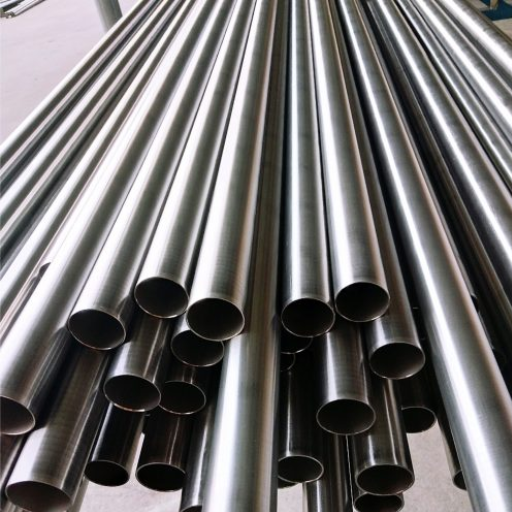
In this instance, I can confidently say that steel tends to be more economical than titanium. Steel’s accessibility and low production costs, coupled with its wide range of uses, make it the material of choice in budget-conscious industries. However, such affordability has its downsides – upfront titanium costs are higher, but its lightweight, high-strength, and anti-corrosion properties may render it cheaper over time. In the end, the choice is dictated by the distinct needs of the project alongside the tradeoff between the short-term expenses and long-term outcomes.
Production Costs and Availability of Titanium Versus Steel
The reason titanium is more expensive than steel is that it has complex extraction and refining processes, making it more expensive to produce. Moreover, the resource is less available and more complex to fabricate on a larger scale. In contrast, steel is more readily available, easier to fabricate, and more economical; all of which makes it the metal of choice in projects that have a limited budget. Nevertheless, the titanium’s high price can be rationalized by long-term strength and durability benefits when the application requires an outstanding strength-to-weight ratio with exceptional corrosion resistance.
Long-Term Value: Weighing Durability Against Initial Investment
In my practical experience dealing with the industry, maintaining a balance between cost and durability likely depends on the case or constraint at hand. Although titanium has a steep initial cost, its unparalleled strength-to-weight ratio and corrosion resistance usually save a lot of money in the long term. This is especially true with regard to situations where maintenance, repair, or replacement for materials with a lower life cycle, like steel, is costly. Finally, decision making should always accompany thorough analysis on the operational context, lifecycle expectation, and budget to maximize value on investment.
When Should You Choose Titanium Over Stainless Steel?
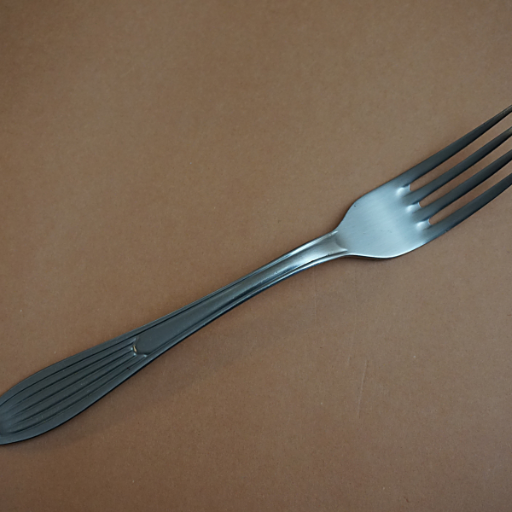
Titanium is your go-to option if you need unrivaled strength for the least amount of weight, outstanding resistance to rust, and extreme temperature tolerance. Its usefulness in aerospace, marine, and medical industries, where weight savings, harsh environment durability, and biocompatibility are crucial, is unmatched. Although it is more expensive than other options at the beginning, the value titanium brings over time augments it as the best option for precise and demanding tasks.
Environments Where Titanium’s Corrosion Resistance Is Critical
Based on what I have experienced, titanium is an essential metal in many industries due to its corrosion resistance. For example, in oceanic uses, titanium is prized for its capacity to endure corrosion from seawater even at great depths over a long time. In the same way, titanium tools and fixtures used in chemical processing plants are safe and long-lasting because they can withstand exposure to damaging materials such as acids and chlorides. For titanium implants and instruments, the medical industry is another primary sector because of its corrosion from body fluids and biocompatibility. All these applications require metals able to stand extremely corrosive environments, and time and again, titanium comes out on top.
Applications Benefiting from Titanium’s Lighter Weight
The lower weight of titanium is advantageous in aerospace, automotive, and sports equipment industries. In aerospace, it decreases the weight of aircraft while providing strength, which improves fuel consumption. The automotive industry is also aided by titanium parts, which improve the performance of the vehicle and decrease emissions. In addition, bicycles and golf clubs are made stronger by the use of titanium, thus enabling effortless performance in sports.
When Titanium’s Unique Properties Justify Its Higher Cost
I feel that titanium’s higher price tag is justified, considering its performance, durability, and reliability, particularly in critical domains. For instance, in the aerospace industry, the fuel savings due to reduced spending from improved titanium-strengthened lightweight fuel efficiency over the long term far exceed the initial costs. Similarly, its biocompatibility in the medical field ensures safety and longevity for implants and devices, which makes it priceless despite the cost. Even in sports equipment, the superior-strength-to-weight ratio titanium offers allows athletes to perform at unprecedented levels while maintaining optimal quality. Ultimately, it’s the performance and durability that make titanium the material of choice, considering the unique factors it presents.
How Do Different Grades of Titanium Compare to Steel Alloys?

When grade types are taken into consideration, titanium frequently surpasses steel alloys in terms of strength-to-weight ratio, corrosion resistance, and biocompatibility. Even though titanium is more expensive, it is lighter and better for aerospace and marine applications as well as medical implants, as titanium is more durable in extreme environments compared to steel alloys, which are usually more cost-efficient. Choosing between the two materials solely depends on the application and its individual requirements in terms of weight, exposure to harmful and extreme environments, and budget.
Comparing High-Strength Steel Alloys to Titanium Grades
To my knowledge, the choice between high-strength steel alloys and titanium grades is a matter of preference based on the specific details of the project. For projects where budget and strength are key factors, high-strength steel alloys are most suitable. They are strong, cost-effective, and are ideal for mass construction and manufacturing, such as in the automotive and construction industries. On the other hand, when weight, resistance to corrosion, and improvement of life cycle are necessary, I tend to favor titanium. Its lightweight and extreme condition durability make it essential for aerospace parts and medical implants. Each material encompasses specific benefits, therefore, the most important is analyzing the economic and functional requirements of the use case.
Specialized Titanium Alloys vs Stainless Steel Variants
The deciding factors in choosing between specialized titanium alloys or their stainless steel equivalents lie in how the material will be used. Titanium alloys are best in lightweight, corrosion-resistant, and biocompatible environments, which makes them suitable for aerospace, medical, and highly advanced fields. On the other hand, stainless steel counterparts are significantly cheaper, more durable, versatile, and resistant to wear, which means they can easily be used in everyday construction, industrial jobs, or for personal use. The ideal combination is found through performance and cost balance, which makes for a definite choice.
Reference
- The Difference between Titanium vs Steel?
- Titanium Versus Steel: A Battle of Strength
- What’s the Difference Between Steel vs Titanium?
Frequently Asked Questions (FAQs)
Q: What are the fundamental differences between steel and titanium as metallic materials?
A: Steel is an alloy primarily made of iron and carbon, while titanium is a naturally occurring element. This basic distinction affects their properties significantly. Steel is heavier with a density of about 8 g/cm³, while titanium is approximately half as dense as steel at 4.5 g/cm³. Their appearance differs too – titanium has a distinctive silver-white color, while steel typically has a darker gray finish. In terms of production, steel is an extremely versatile and widely manufactured metal, making it more affordable, whereas titanium is much more difficult to extract and process, contributing to its higher cost.
Q: How does titanium vs steel compare in terms of strength and durability?
A: While both steel and titanium are strong metals, they offer different performance characteristics. High-quality alloy steel typically provides greater absolute strength and hardness than pure titanium. However, titanium has a higher strength-to-weight ratio, meaning it’s stronger relative to its weight. In terms of durability, titanium exhibits superior corrosion resistance compared to most steels (except specialized stainless steel). Titanium naturally forms a protective oxide layer (titanium dioxide), making it highly resistant to environmental damage, while steel generally requires additional treatments or coatings for similar protection.
Q: What is the tensile yield strength of titanium versus steel?
A: The tensile yield strength varies considerably depending on the specific grade of each metal. Typically, carbon steel has a yield strength ranging from 250-1000 MPa, while alloy steel can reach 1600 MPa or higher. Pure titanium (Grade 2) has a relatively modest yield strength of about 275-450 MPa, which might suggest that steel is stronger than titanium. However, titanium alloys like Ti-6Al-4V can achieve yield strengths of 800-1100 MPa. The key difference is that titanium achieves these strengths at about half the weight of steel, giving it an exceptional strength-to-weight ratio that often makes it preferable in aerospace and high-performance applications.
Q: What are the key applications of steel and titanium in various industries?
A: Steel is an extremely versatile material used extensively in construction, automotive manufacturing, appliances, tools, and infrastructure due to its cost-effectiveness and strength. Different types, like stainless steel’s corrosion resistance, make it ideal for kitchenware and medical instruments. Titanium, while more expensive than steel, excels in aerospace (aircraft frames, engines), medical implants (because titanium is biocompatible), high-performance sporting equipment, marine applications (due to saltwater resistance), chemical processing equipment, and military applications. The choice between them typically depends on whether weight, cost, or specific performance characteristics are the priority.
Q: How do steel and titanium compare in terms of conductivity and thermal properties?
A: Steel and titanium differ significantly in how they handle heat and electricity. Steel is a relatively good conductor, with thermal conductivity around 50 W/m·K for carbon steel, while titanium has much lower thermal conductivity (approximately 22 W/m·K). This makes titanium an excellent choice for applications requiring thermal insulation. Similarly, titanium has significantly higher electrical resistance than steel, making it less suitable for electrical applications. Regarding thermal expansion, titanium expands less than steel when heated, which can be advantageous in applications where dimensional stability under varying temperatures is important.
Q: Is titanium always better than steel for high-performance applications?
A: No, titanium is not universally superior to steel. While titanium offers excellent corrosion resistance and strength-to-weight ratio, certain steels may be stronger than titanium in absolute terms. For applications where weight isn’t a primary concern but maximum strength is required, alloy steel often remains the better choice. Steel is also superior in high-temperature applications above 800°F, where titanium begins to lose strength. Additionally, steel is far more cost-effective, easier to work with, and simpler to repair. The choice between steel and titanium should be based on specific application requirements rather than assuming one is always better.
Q: How do the costs of titanium and steel compare?
A: Titanium is significantly more expensive than steel, typically costing 5-10 times more by weight. This price difference stems from titanium’s complex extraction and processing requirements. Beyond material costs, titanium is also more expensive to fabricate and weld, requiring specialized equipment and techniques due to its reactivity with oxygen at high temperatures. Steel is an extremely cost-effective metal with well-established manufacturing processes, making it the economical choice for most applications. This cost difference explains why titanium is typically reserved for applications where its unique properties (lightweight, corrosion resistance, biocompatibility) justify the higher expense.
Q: How do manufacturing processes differ between steel and titanium?
A: Manufacturing with steel and titanium involves notably different challenges and techniques. Steel is an alloy that’s relatively easy to cast, form, weld, and machine using standard equipment. It can be worked at a wide range of temperatures and responds well to various heat treatments to enhance properties. Titanium, however, requires more specialized approaches due to its reactivity with oxygen, nitrogen, and hydrogen at elevated temperatures. Titanium processing must be done in a vacuum or inert atmosphere, requires specific cutting tools and slower machining speeds, and demands more complex welding techniques. These manufacturing differences contribute significantly to titanium’s higher cost compared to steel.


